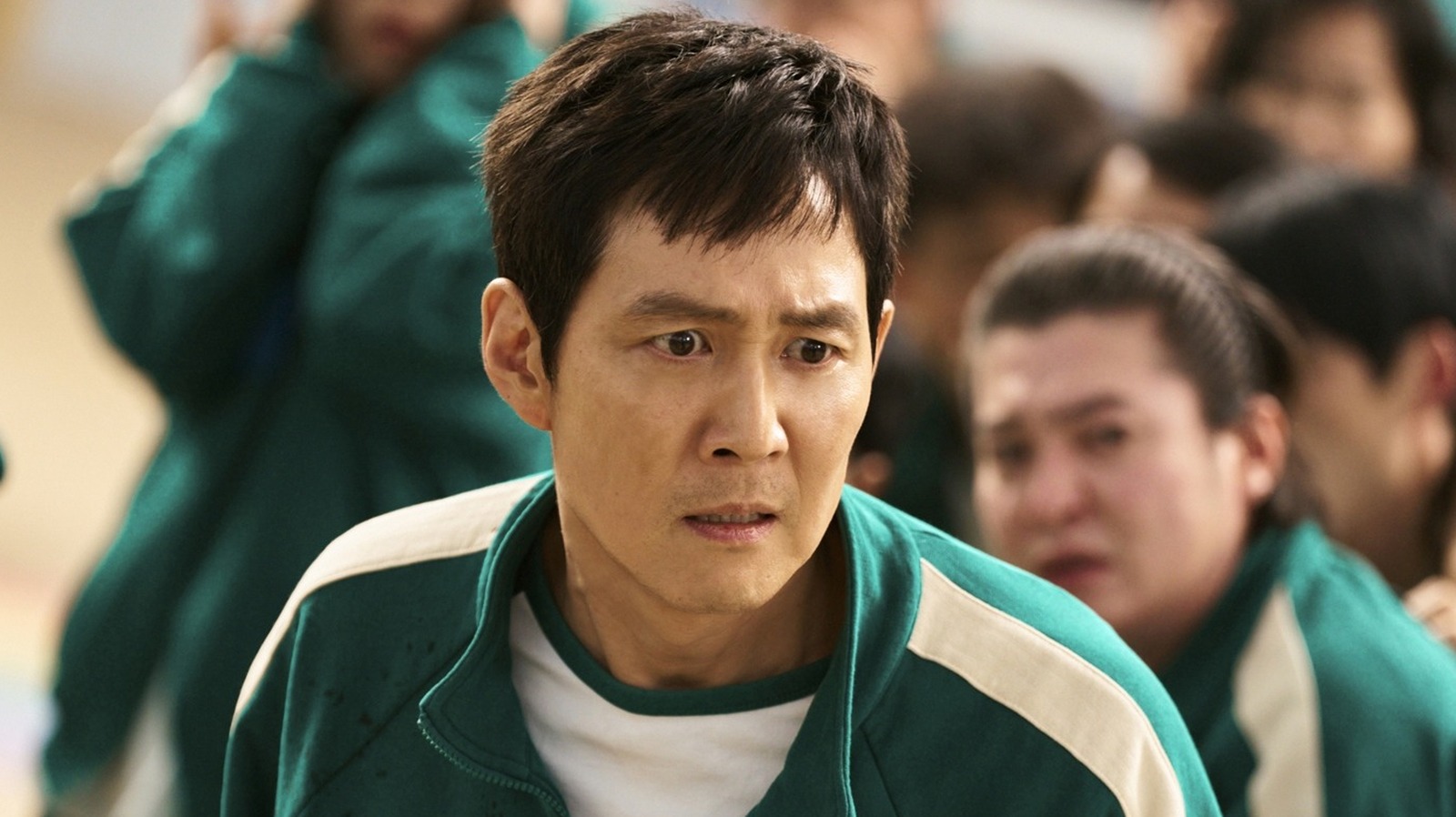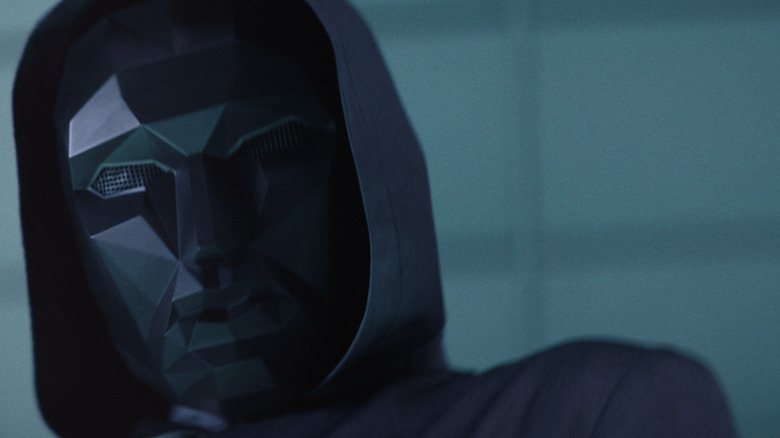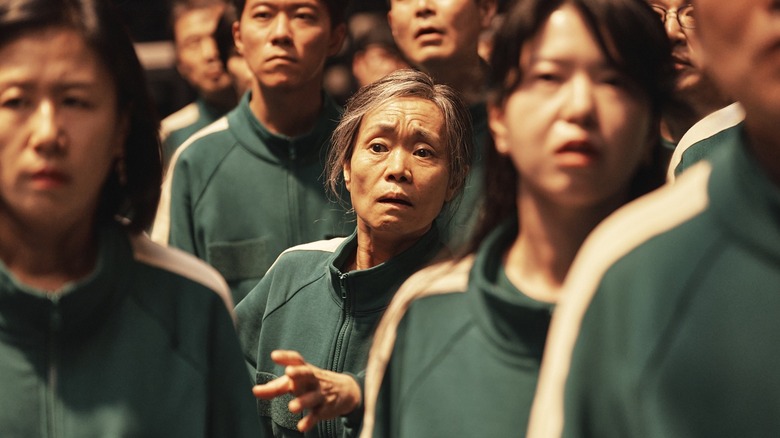
As a fan who has been eagerly waiting for “Squid Game” since its groundbreaking debut, I must confess that Season 2 left me feeling like Gi-hun after losing yet another round of Red Light, Green Light – disappointed and frustrated. While there were some intriguing ideas and promising twists, the execution fell flat, and it seemed like the writers were trying to replicate the original’s success rather than creating something truly captivating and original.
When Netflix revealed the plan to produce two additional seasons of the global hit series “Squid Game” from 2021, I experienced a mix of anticipation and apprehension, shared by millions of fans worldwide. It’s hard to imagine how one could build upon something so powerful and gripping, which managed to convey its narrative in just 9 episodes. Is it feasible or even advisable to continue a well-balanced storyline that was essentially concluded (with the exception of an ending cliffhanger that felt somewhat forced)? Although I wish to answer affirmatively, I must acknowledge that “Squid Game” Season 2 may struggle to recapture the magic of its debut, which managed to capture lightning in a bottle and cannot be matched again.
We pick up where Season 1 left off, with a red-haired Gi-hun (Lee Jung-jae) not getting on the plane to join his daughter in America but instead swearing to take revenge on the people responsible for hundreds of deaths. After that ominous phone call from the Front Man (Lee Byung-hun), we jump ahead two years, which Gi-hun has spent obsessively trying to find the guy who recruited him and preparing to take down the entire illegal organization if he can actually locate them. He hires a man and his team to scatter like bait around Seoul’s train stations, hoping to lure out the Salesman (Gong Yoo) who made him join the games. For two years, there’s nothing — not a single trace. Then, out of nowhere, the Salesman turns up, and Gi-hun won’t let this one opportunity slip away.
During this period, we discover that Jun-ho (Wi Ha-joon), who was supposed to be deceased, miraculously survived his run-in with the Front Man, although his memories of the events, except for details about the games, remain elusive. Following a protracted hospital stay, he persists in probing the case further, only to find that his fellow officers are skeptical due to the lack of concrete evidence. By chance, Jun-ho crosses paths with Gi-hun and they both come to understand their shared objective: to locate and dismantle the games and those responsible for them. In time, they find themselves back on the island, but not under ideal circumstances. Predictably outwitted by the Front Man and his associates, Gi-hun is compelled to rejoin the games once more in an attempt to bring about their downfall. He is optimistic that his prior experience and knowledge will enable him to persuade newcomers to withdraw and recognize the games’ inherent unfairness. However, such is not the nature of desperation and avarice, and his strategy swiftly spirals into a hopeless, terrifying predicament.
A few good ideas can’t save uninspired writing

Season 2 struggles with multiple injuries, primarily appearing superfluous and forced. Despite spending three years in production, the writers fall short of replicating the excellence from Season 1. The opening episodes are engaging, welcoming back beloved characters alongside new ones, showcasing the moral intricacies and personal dramas that make “Squid Game” exceptional – with Gong Yoo’s intense portrayal of the Salesman being a standout, albeit brief, performance. Initially, there’s a hint that the subsequent episodes could delve deeper into ethical dilemmas, greed, capitalism, revenge, and justice. However, this potential is quickly diminished once we are returned to the island.
Despite initially appearing rather intelligent in the series, Gi-hun’s hazy, insufficient strategies grow increasingly disappointing. Given his bloodthirsty nature and commitment, coupled with two years to plan his revenge, his lack of foresight and innocence become progressively implausible as the games continue. Apart from the initial challenge (reminiscent of Red Light, Green Light, still one of the most brutal scenes from the original and playing out similarly), he quickly loses his initial boldness and resilience. This sequence of events is both disheartening and monotonous to witness, often resembling their occurrence three years ago, minus the element of surprise.
Indeed, some of the newer games aim to bring a sense of novelty and excitement, but they fall short when compared to their earlier versions in terms of creativity and suspense. This shortcoming can also be attributed to the new characters, who are sometimes more amusing and eccentric than their counterparts, yet lack depth and complexity, making them hard to connect with or form an opinion about. It’s worth mentioning that Season 2 tends to replace build-up with humor, which borders on mocking its own narrative tension. Over time, this shift results in a gradual lessening of the overall intensity.
Promising twists, lackluster execution

As a passionate viewer, I must admit that while I admired the diverse paths the show attempted to explore, I felt that it didn’t fully capitalize on the intriguing possibilities it presented initially. The early plot twists were brimming with potential, but unfortunately, they failed to deliver a satisfying emotional payoff as the seasons progressed. In terms of Season 2, it struggled to recapture the depth and gripping drama that made the series so emotionally resonant earlier on. There simply wasn’t a character like Sae-byeok (Hoyeon), Oh Il-nam (Oh Yeong-su), or Ali (Anupam Tripathi) who could truly tug at our heartstrings or resonate with us on a deeper level.
Instead of continuing as a vibrant extension of its impressive earlier form, Season 2 appears to be a shadow of the show’s former glory, striving to replicate and reinvent the elements that turned it into an unexpected and intriguing cultural sensation. A persistent issue here is the replacement of genuine drama, authentic characters, and heartfelt emotions with formulaic storylines, shock tactics, and contrived conflicts intended to be sensational and grandiose. This is particularly evident in unnecessary extended scenes such as the voting process following each game, petty but insignificant disagreements among new characters, and a blatantly obvious ending that serves only to set up another season which has already been commissioned by Netflix.
While “Squid Game” Season 2 isn’t outright poor or unenjoyable at moments, it’s clear that it deviates from the exceptional standard it had set earlier.
“Squid Game” Season 2 premieres on Netflix on December 26.
Read More
- Fortress Saga tier list – Ranking every hero
- Cookie Run Kingdom Town Square Vault password
- Glenn Greenwald Sex Tape Leak: Journalist Cites “Maliciously Political” Motives
- Grimguard Tactics tier list – Ranking the main classes
- Mini Heroes Magic Throne tier list
- How to Prepare and Dominate the Awakened Hollyberry Cookie Update
- Overwatch Stadium Tier List: All Heroes Ranked
- Hero Tale best builds – One for melee, one for ranged characters
- Castle Duels tier list – Best Legendary and Epic cards
- Cookie Run Kingdom: Shadow Milk Cookie Toppings and Beascuits guide
2024-12-26 11:30